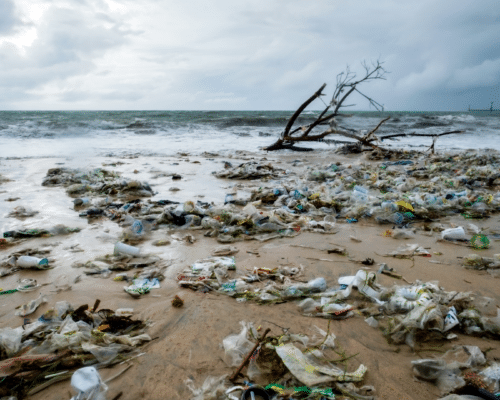Fossil Fuel Industry and the Media’s Role in Greenwashing
Source: DeSmog
07 November 2021 – by Eric Koons
“Clean coal” back in 2017 was touted as a game-changer by the fossil fuel industry, yet nothing materialised. Since then, several other pro-fossil fuel narratives have emerged from natural gas being renewable to how electric cars can’t outperform gas guzzlers. This misinformation is not without its consequences. Fossil fuel production is increasing, especially natural gas, along with fossil fuel consumption, is a real threat for climate change. A major industry of fossil fuel consumption is electricity generation.
The world should stop doling out fossil fuel subsidies and should adopt energy efficiency and reduce coal use for electricity generation and energy production. Fossil fuel use is a climate crisis.
Campaign Against Renewable Energy by Fossil Fuel Industry
Earlier this year, severe storms in Texas in the United States led to massive blackouts across the state. Blame poured on renewable energy rather than the state’s woefully underprepared coal, oil and gas plants. In every case, lobbyists, politicians, and media outlets quickly supported the claims denouncing renewables. Yet, many of these misleading narratives result from a concerted effort by fossil fuel companies to keep their industry propped up.
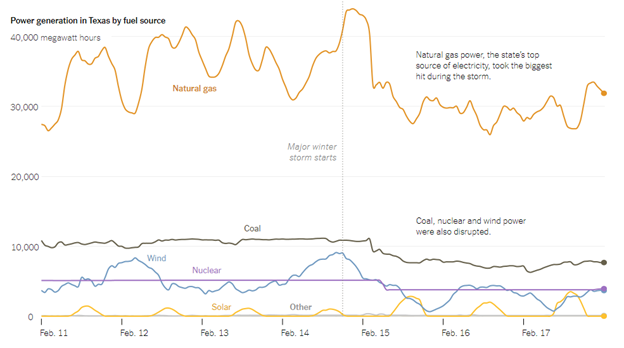
Fossil Fuel Industry Giants Spend Millions on Social Media
Until recently, it is sometimes difficult to discern just how many third parties are involved in supporting the fossil fuel energy agenda and to what extent it has been successful. Earlier this year, CNN reported that pro-fossil fuel Facebook ads in the United States were viewed 431 million times in 2020. This was the fruit of a USD 9.6 million ad campaign by oil and gas companies. The crude oil and gas industry is one of the biggest hurdles in climate change and renewable energy.
Facebook’s fight against claims about not doing enough to curb misinformation of late are receiving more and more attention. It is now clear that the tech giant is helping the spread – inadvertently or not – of misinformation by big oil and other fossil fuel giants, amongst a plethora of other issues.
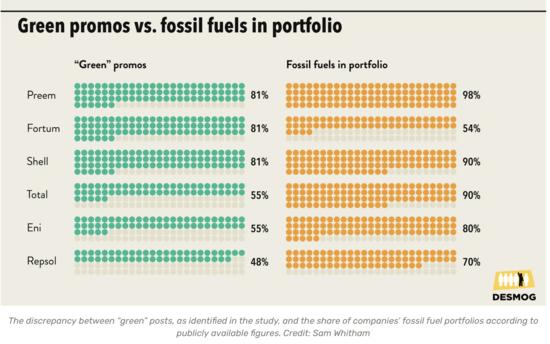
Changing the Outlook on Fossil Fuels, Greenhouse Gas Emissions and Carbon Dioxide Emissions
In a similar vein, the fossil fuel industry has spent a lot of time and money promoting a sustainable image of their business, like videos suggesting their actions on curbing greenhouse gas emissions and carbon emissions. However, in contrast, and at the same time, fossil fuel companies are actively lobbying against climate action and science both in-person and online. They don’t do much to curb carbon emissions and fossil fuels. What’s more, the same companies are employing third parties to slow down the global transition towards a clean energy future, renewable energy and climate change.
“Did we aggressively fight against some of the science? Yes. Did we join some shadow groups to work against some of the early efforts? Yes, that’s true. But there’s nothing illegal about that. We were looking out for our investments. We were looking out for our shareholders.'”, said Keith McCoy, an Exxon lobbyist on a recorded hidden camera exchange by investigators from Greenpeace UK.
While McCoy’s candid answers made headlines, climate change activists were not surprised. There is evidence of the fossil fuel sector’s efforts to downplay climate change dating as far back as 1977. For climate change curbing carbon dioxide and greenhouse gas emissions is an absolute must.
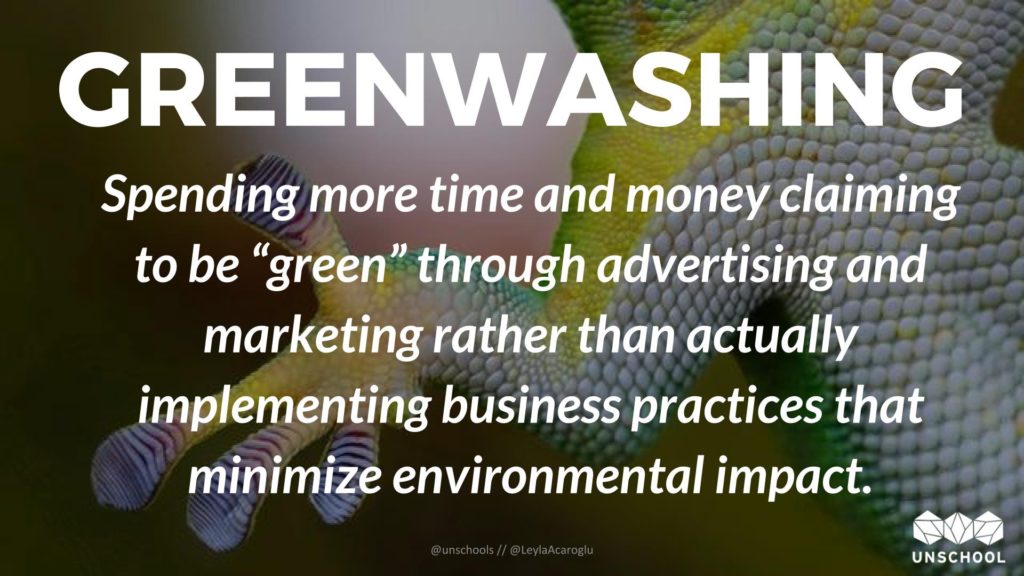
Public Opinion on Fossil Fuel Production is Changing
Now everyone knows that burning fossil fuels creates air pollution. Greenwashing is now synonymous with misinformation, and the fossil fuel industry continues to spread its reach to sway public opinion.
However, as Jeremy Dalton points out, younger generations have become more in-tune with attempts by big companies to appear more personable and provocative in their advertising.
“Where oil once represented progress and prosperity for a broad swath of the public. Today, young people panic about climate change regarding the industry with suspicion and contempt,” notes Dalton. “Companies are keenly aware of this fact and have responded with ads and social media campaigns aimed at winning over the next generation of workers and consumers.” Public opinion on fossil fuel companies, fossil fuel production, carbon dioxide, climate change is rapidly changing.
The Key Aspects of Greenwashing
The subtlety behind the advertising and greenwashing efforts can be surprising. The use of words “green” or “eco” are good examples; others like setting up the advert by evoking nature are another. Some fossil fuel companies go as far as to cherry-pick data to make them seem more environmentally conscious.
Similarly to other forms of misinformation, greenwashing is challenging to verify for people viewing the information on the internet. The fact that so much energy production and environmental information exists makes this task even harder. Misrepresented data can be nearly impossible for non-specialists to catch.
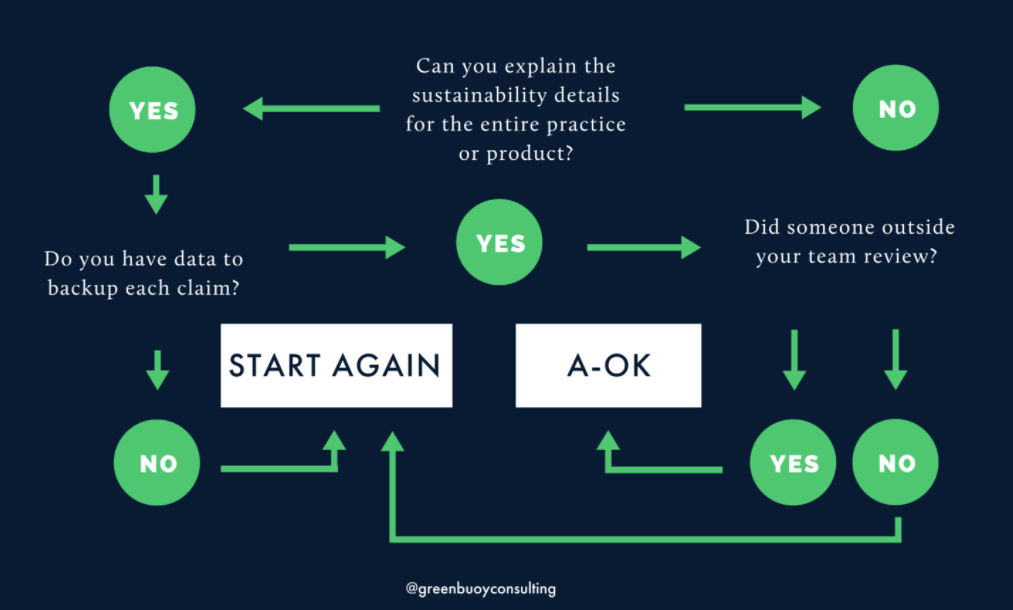
How To Catch Greenwashing
So, what exactly can consumers do to not fall victim to greenwashing and misinformation from oil, natural gas, and other fossil fuel giants?
- Be sceptical of news that seems too good to be true, or contrarian to other sources
- Question the meaning behind ads
- Check the sources quoted in reports
- Read into the background of the journalist or company making a claim
The good news is that groups and ad hosts are beginning to verify and crackdown on misinformation independently, but it always pays to double-check and cross-reference information yourself.

by Eric Koons
Eric is a passionate environmental advocate that believes renewable energy is a key piece in meeting the world’s growing energy demands. He received an environmental science degree from the University of California and has worked to promote environmentally and socially sustainable practices since. Eric’s expertise extends across the environmental field, yet he maintains a strong focus on renewable energy. His work has been featured by leading environmental organizations, such as World Resources Institute and Hitachi ABB Power Grids.
Read more